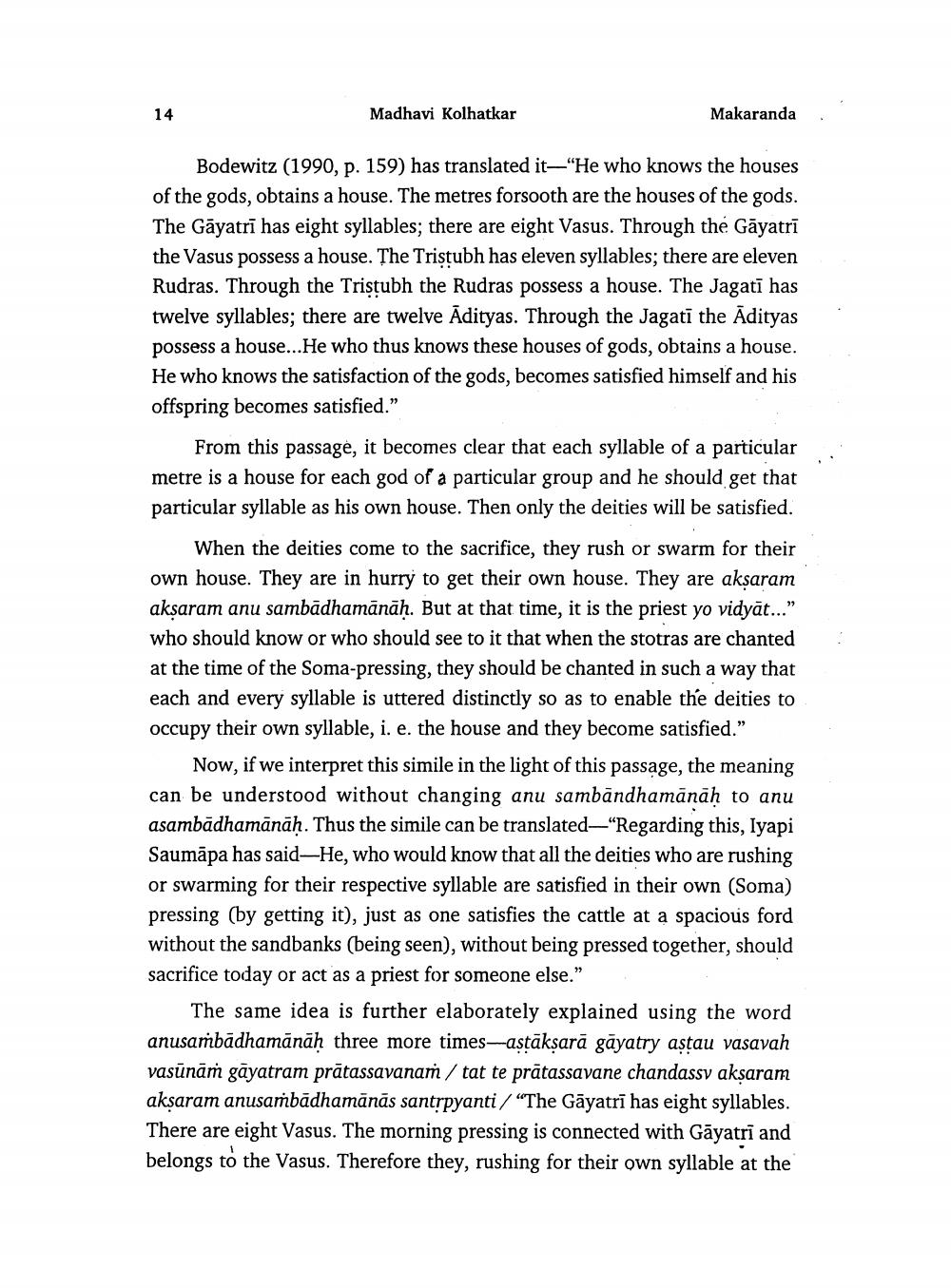________________
14
Madhavi Kolhatkar
Makaranda
Bodewitz (1990, p. 159) has translated it—"He who knows the houses of the gods, obtains a house. The metres forsooth are the houses of the gods. The Gāyatrī has eight syllables; there are eight Vasus. Through the Gāyatrī the Vasus possess a house. The Tristubh has eleven syllables; there are eleven Rudras. Through the Tristubh the Rudras possess a house. The Jagati has twelve syllables, there are twelve Adityas. Through the Jagati the Adityas possess a house...He who thus knows these houses of gods, obtains a house. He who knows the satisfaction of the gods, becomes satisfied himself and his offspring becomes satisfied."
From this passage, it becomes clear that each syllable of a particular metre is a house for each god of a particular group and he should get that particular syllable as his own house. Then only the deities will be satisfied.
When the deities come to the sacrifice, they rush or swarm for their own house. They are in hurry to get their own house. They are aksaram aksaram anu sambādhamānāḥ. But at that time, it is the priest yo vidyāt..." who should know or who should see to it that when the stotras are chanted at the time of the Soma-pressing, they should be chanted in such a way that each and every syllable is uttered distinctly so as to enable the deities to occupy their own syllable, i.e. the house and they become satisfied."
Now, if we interpret this simile in the light of this passage, the meaning can be understood without changing anu sambandhamanah to anu asambādhamānāḥ. Thus the simile can be translated—“Regarding this, Iyapi Saumāpa has said-He, who would know that all the deities who are rushing or swarming for their respective syllable are satisfied in their own (Soma) pressing (by getting it), just as one satisfies the cattle at a spacious ford without the sandbanks (being seen), without being pressed together, should sacrifice today or act as a priest for someone else.”
The same idea is further elaborately explained using the word anusambādhamānāh three more times—astākṣarā gāyatry astau vasavah vasūnām gāyatram prātassavanam / tat te prātassavane chandassv aksaram akşaram anusambādhamānās santspyanti / “The Gāyatrī has eight syllables. There are eight Vasus. The morning pressing is connected with Gāyatri and belongs to the Vasus. Therefore they, rushing for their own syllable at the




